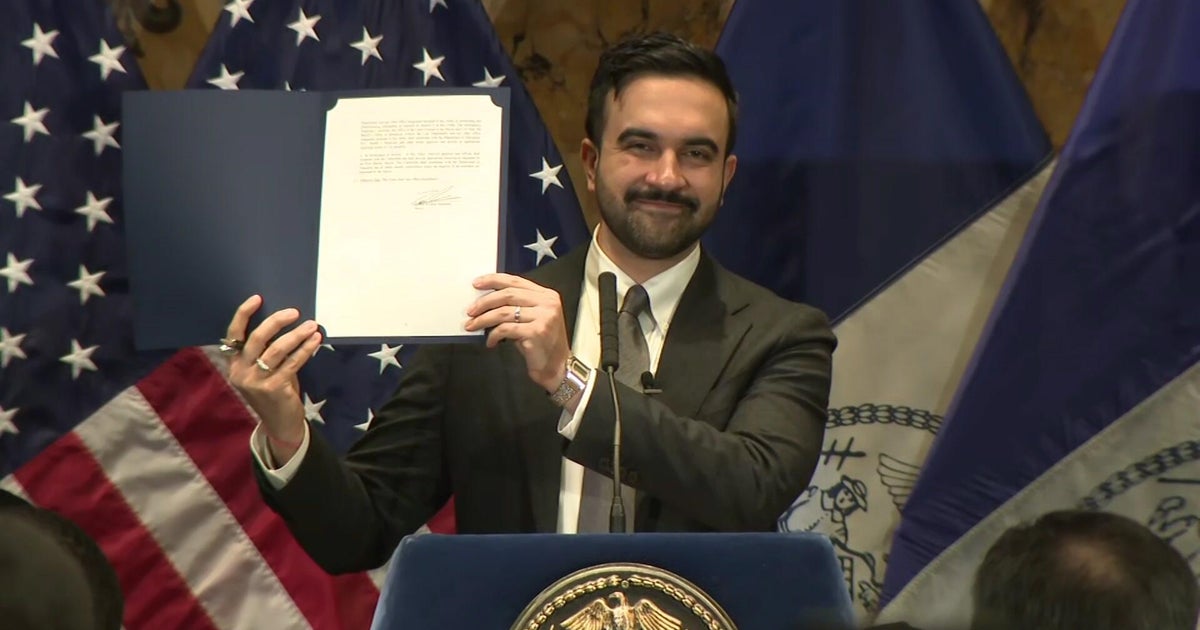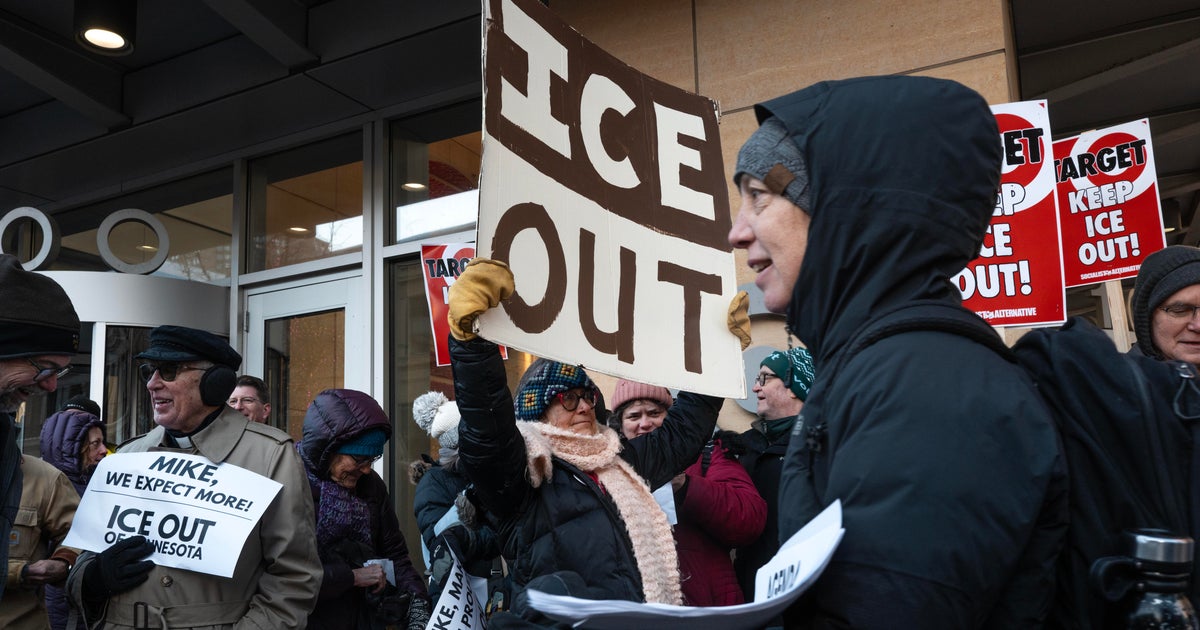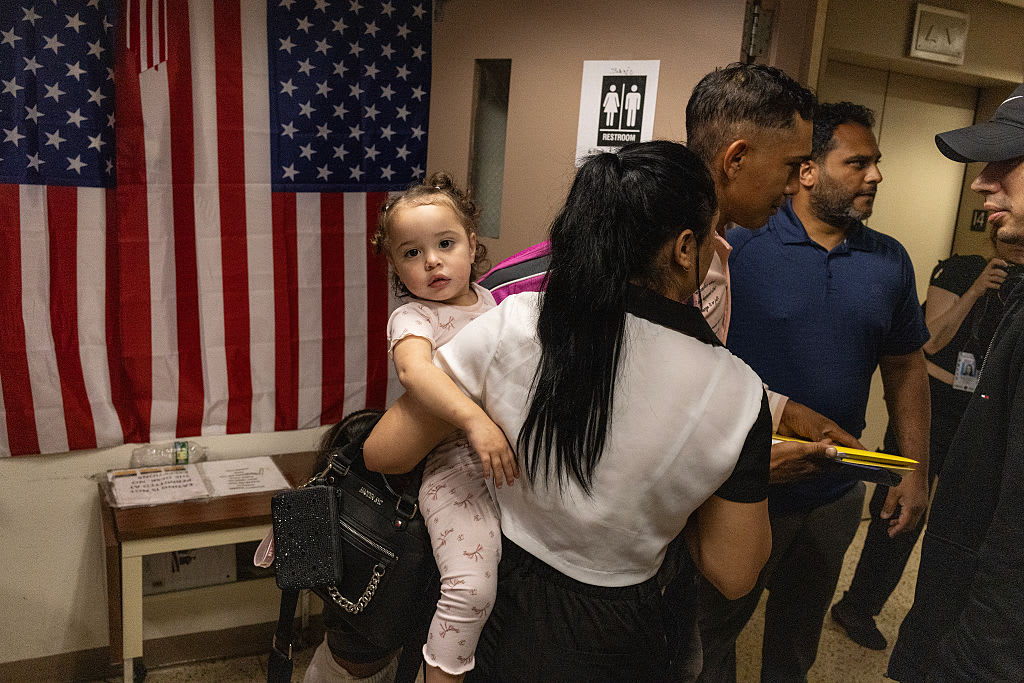Undocumented migrants have come to the U.S. for centuries. Why do we treat them differently today?
The surge in people arriving at the United States southern border comes as the Biden administration hopes to overhaul an immigration system often described as broken.
According to a 2015 Pew Research Center report, the number of foreign-born people in America has quadrupled since the 1960s. At least 11 million immigrants are not here legally — and under the Biden plan, most of them would qualify for a path to citizenship.
That plan is stirring a fresh debate about what this country represents, and who it is for.
Some Americans — like Alexis Nodal, Foaad Delafadlalla and James Davison — remember every detail about how their families arrived.
"I came in a raft, I escaped from Cuba in a raft 29 years ago," Nodal told "CBS This Morning" co-host Tony Dokoupil.
"I moved to U.S. as a refugee," Delafadlalla said.
As for Davidson, he "flew from Australia to Los Angeles, and no problems."
For others, the stories have been told and retold through generations.
A man named John Bono told Dokoupil his "great-grandfather was a stonecutter from Italy."
Another person, Carmen Vazqueztell, said her family was originally from Spain.
"My Oma and Opa are from Germany and they came over through Ellis Island," said American Jenna Sickinger.
And for other families, the legal details may be a little fuzzy.
"Do you remember what the rules were, what the process was like back then?" Dokoupil asked three people.
"Only from what I've read. They didn't talk about it much," one said.
Another simply answered, "I'm not sure."
"I don't know about that," a third person replied.
For the tens of millions of Americans who can trace their ancestors back to early settlers or later arrivals through Ellis Island, there is a good reason they cannot remember the national rules back then — there were none. The major exception was the Chinese Exclusion Act, which barred Chinese laborers from coming beginning in 1882.
Later, Japanese immigrants, Asian Indians and others from Asia would also become targets of exclusion — that guaranteed people of Asian descent "…would be but a small, marginalized population…" for nearly a century, according to "Impossible Subjects", a book written by Columbia University history and Asian American studies professor Mae Ngai.
Despite that, according to Ngai, almost everyone who made it to America got to stay in America if they arrived before the first national immigration act was passed in 1924.
"You just showed up," Ngai said. "You didn't need a passport, you didn't need a visa. There was no such thing as a green card."
If there are no restrictions, Ngai explained, then everyone would be legal.
Of the people who passed through Ellis Island, 98% were allowed in.
And as the "CBS This Morning" co-host discovered on a recent trip to the island, one of those arrivals was his own great-grandfather.
"Raffaelle starts the story of your family's immigration," a researcher explained.
Raffaelle Felice had come from Italy in a situation not unlike the border stories heard today — arriving young and alone, he was "an unaccompanied minor."
"He became a citizen, fought in World War I. His children fought in World War II. It ends up being what a lot of people would call a classic American story," Dokoupil said. "But it makes me think what are the important differences if any, between him in the early 20th century and that same 15-year-old on the border today?"
Ngai answered, "Color of his skin."
In her book, Ngai writes about the little-known and uncomfortable origins of the U.S.'s national immigration policy. It began with quotas that favored immigrants from predominantly European nations.
"A kind of pure American, right, and it's absolutely white," she explained.
In fact, when those more-favored European immigrants entered the country illegally — exceeding or avoiding the quotas entirely — they were very often forgiven.
Between 1925 and 1965, at least 200,000 undocumented Europeans were given a path to citizenship, according to Ngai's research.
"The mindset was one of if you're here, if you are making a contribution to society, we're not just gonna throw you out," she said.
Most people still seem to agree, with polls showing three-quarters of Americans support a path to citizenship. But for decades, both Democrats and Republicans have failed to find one.
Some common fears that come up — "We don't have enough resources," "We're overcrowded already," and concerns over these immigrants "taking people's jobs."
But on the way to Ellis Island, CBS News spoke with Alex Barraza, a "Dreamer" whose parents brought him from Mexico as an infant.
"It was dangerous because they had to cross the Rio Bravo in order to cross to El Paso, Texas," Barraza said.
He said he had not realized that many families arriving through Ellis Island were, at one point, as undocumented as his parents.
"Do you think it's fair that the people who came through this building, could come with no paperwork at all, and not live in fear, be welcomed in? And your parents are in a different situation?" Dokoupil asked him.
"I don't think it's fair," Barraza answered.
Now, he can only hope that eventually families like his, who came with the same dreams, will also be welcomed as Americans.
"They wanted us to — to see us happy. Just to live a life of freedom. And it's just, it's hard," he said. "They came here to live a better life. I don't see the difference between us and them."
Professor Ngai writes in her book that the Chinese are the only group to be excluded from immigration in the U.S. explicitly by name.
Ngai, who is Chinese American, told Tony Dokoupil recently that she may have been the victim of a hate crime. She said she was rammed on the streets of New York, but that she felt lucky — although she wonders now how to defend herself.



